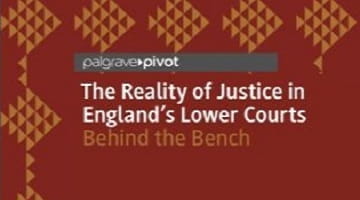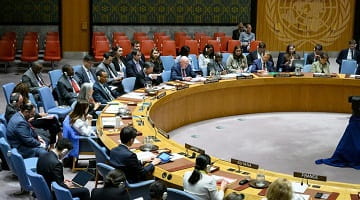2024/25 entry Applications also open for 2025/26
LLM Master of Laws
About this course
LJMU's Master of Laws LLM provides a broad liberal arts education in the law for students wishing to undertake a wide range of legal study options.
- Develop knowledge of business, corporate and finance law, global crime and security and criminal justice
- Examine key legal and justice issues in both a domestic and global context
- Learn from tutors who have extensive experience with a variety of backgrounds and research interests
- Pursue new areas of interest in-depth or deepen already acquired undergraduate understanding in a given area
- Provides opportunities to critically analyse key themes in law and criminal justice and global crime
- Generous funding scholarships available for home and overseas students
- Part-Time Study Option
This flexible LLM is suitable for students from experienced practitioners, graduates, career changers and overseas students wishing to broaden their legal knowledge.
The School of Law has decades of experience providing postgraduate legal education. The LLM programmes are consistently highly rated by students and practitioners alike.
The aim of this programme is to create a positive learning environment for students in which to practice advanced scholarship and research and gain academic and intellectual progression, together with the acquisition of specific knowledge and skills.
The programme will give you the opportunity to critically analyse key themes in law and criminal justice and global crime and will challenge your thinking and stimulate your academic aspirations in these fields.
Fees and funding
There are many ways to fund postgraduate study for home and international students
Fees
The fees quoted at the top of this page cover registration, tuition, supervision, assessment and examinations as well as:
- library membership with access to printed, multimedia and digital resources
- access to programme-appropriate software
- library and student IT support
- free on-campus wifi via eduroam
Additional costs
Although not all of the following are compulsory/relevant, you should keep in mind the costs of:
- accommodation and living expenditure
- books (should you wish to have your own copies)
- printing, photocopying and stationery
- PC/laptop (should you prefer to purchase your own for independent study and online learning activities)
- mobile phone/tablet (to access online services)
- field trips (travel and activity costs)
- placements (travel expenses and living costs)
- student visas (international students only)
- study abroad opportunities (travel costs, accommodation, visas and immunisations)
- academic conferences (travel costs)
- professional-body membership
- graduation (gown hire etc)
Funding
There are many ways to fund postgraduate study for home and international students. From loans to International Scholarships and subject-specific funding, you’ll find all of the information you need on our specialist postgraduate funding pages.
Please be aware that the UK’s departure from the EU may affect your tuition fees. Learn more about your fee status and which tuition fees are relevant to you.
Rice-Jones Scholarship
The Rice-Jones Charitable Trust was set up by an individual who wanted to benefit postgraduate law students studying in the North-West of England. The lady's late husband and her father were both lawyers. This has inspired her to help students who show academic promise and a commitment to the legal profession, yet who may not have the financial support to undertake their studies. The Rice-Jones Charitable Trust is registered with the Charity Commission: charity 117189.
The Rice-Jones Scholarship will be offered to applicants who have accepted a place to study on a postgraduate law course including, but not limited to, the Graduate Diploma in Law, the Legal Practice Course, the Bar Professional Training Course or the Masters in Law.
For all 2023/24 applications, each award will total between 250 and 1500 towards study expenses. Awards granted will depend on the applications received.
Application information coming soon.
Employability
Further your career prospects
LJMU has an excellent employability record with 96% (HESA 2018) of our postgraduates in work or further study six months after graduation. Our applied learning techniques and strong industry connections ensure our students are fully prepared for the workplace on graduation and understand how to apply their knowledge in a real world context.
The LLM is designed for people with a more general interest in law and criminal justice who wish to develop their careers outside of the traditional boundaries of specialist law.
The student experience
Discover life as a postgraduate student at LJMU.
News and views
Browse through the latest stories and updates from the University and beyond
Course modules
Discover the building blocks of your programme
This course is currently undergoing its scheduled programme review, which may impact the advertised modules. Programme review is a standard part of the University’s approach to quality assurance and enhancement, enabling us to ensure that our courses remain up to date and maintain their high standard and relevancy.
Once the review is completed, this course website page will be updated to reflect any approved changes to the advertised course. These approved changes will also be communicated to those who apply for the course to ensure they wish to proceed with their application.
Core modules
Dissertation
60 credits
This module will enable you to undertake a detailed study of a clearly defined legal or criminal justice topic, issue or problem. It aims to:
- increase knowledge of a selected subject area and develop a greater critical awareness
- present findings in an appropriate form
Advanced Legal Research Methods
20 credits
This module introduces research methodologies available for conducting research in law and criminal justice. It aims to:
- facilitate development of Masters-level technical legal and criminal justice research
- encourage a Masters-level degree of independence and responsibility
- introduce key research methodologies for researching law and criminal justice
- develop the technical research requirements of a Masters dissertation
Optional Modules
Drugs, Alcohol and Criminal Justice
20 credits
This module aims to develop your understanding of drug and alcohol use within contemporary society. It deconstructs the drug and alcohol status quo so you can acknowledge the complexities and contradictions that exist within this sphere. It aims to:
- provide a broad critical understanding of the different paradigms and perspectives on substance (mis)use and relevant policy in relation to crime and criminal justice
- set a critical socio-cultural scene for you to build up a comprehensive picture of drug and alcohol use within contemporary capitalist society
- develop your understanding of drug policy and critically consider the rationale and motivations that mould policy developments within this sphere
- develop your knowledge of how drug and alcohol users are responded to within a criminal justice context
Advanced Critical Criminology
20 credits
This module is designed to examine the social construction of crime. It aims to:
- provide a balance between theoretical perspectives and empirical, practical knowledge about the power imbalances in society
- critically examine the relationship between these imbalances and crime (reported and unreported), as well as the criminal justice system's responses to them
- equip you with the skills required to demonstrate a critical understanding of crimes involving the abuse of social and/or individual power
Delivering Rehabilitation
20 credits
This module critically evaluates, at an advanced level, the role and function of the prison and probation services in relation to the delivery of state punishment and rehabilitation. It aims to:
- critically reflect on the values and principles that underpin the delivery of contemporary penal policy through the creation of the National Offender Management Service (NOMS)
- scrutinise the extent to which contemporary penal policy and practice actually delivers a more systematic approach to the management of offenders
Youth Justice
20 credits
This module aims to give you a critical, theoretically-informed and socially-orientated grounding in the study of youth justice. It enables you to:
- develop an analytical approach to understanding the treatment and experiences of young people within, and at the hands of, the criminal justice system
- consider the historical basis of the youth justice system and how political influence has played a significant role in the current development of youth justice policy
- critically compare youth justice policy and practice in England and Wales
Contemporary Issues in International Criminal Justice
20 credits
This module will enable you to gain advanced knowledge of key issues relating to international and comparative criminal justice. It aims to develop advanced:
- knowledge and critical understanding of the theoretical concepts that underpin policy and practice with regard to issues in the delivery and maintenance of International Criminal Justice
- critical awareness of social and political issues which have an impact on the institutions which form part of international-level criminal justice responses and implementation strategies
The Sociology of Policing
20 credits
This module seeks to critically explore the complex and dynamic relationship between policing services/agents and members of the diverse public these organisations serve. It will help you develop a critical appreciation of the historical and conceptual development of modern policing forms, evaluate contemporary policing structures/methods/networks, and explore future challenges for service provision.
International Criminal Law
20 credits
This module will:
- introduce you to the basic concepts, institutions and processes of international criminal law
- introduce you to current debates regarding the application of international criminal law
- provide you with an appreciation of contemporary issues of global concern relating to the prosecution of international crimes
Conflict and Warfare in International Law
20 credits
This module aims to:
- consider current controversies in international law pertaining to the use of force between states
- provide you with an understanding of legal limitations on methods and means of armed conflict
- explore modern and emerging challenges to the law of armed conflict
The United Nations, International Security and Global Justice
20 credits
The module aims to:
- introduce you to the work of the United Nations in the maintenance and restoration of international peace and security
- develop your understanding of the legal framework which governs the work of the UN in this area
Terrorism and Organised Crime
20 credits
The module aims to:
- introduce you to the basic concepts, institutions and processes of international law
- build knowledge in the themes of crime, justice and security within a global legal context
- provide you with an appreciation of selected contemporary issues of global concern in the context of conceptual themes of crime, justice and security
International Human Rights Law
20 credits
Introduces students to the basic conceptual, institutional and substantive elements of international human rights law, current debates regarding the interpretation and application of international human rights law.
The module will provide students with critical appreciation of contemporary issues of global and regional concern relating to the interpretation and application of international human rights law.
Philosophy of History, International Relations and European Integration
20 credits
The module aims to teach the students the various theories on philosophy of history (linear and directional vs. cyclical history; ‘end of history’ theories; Marxist notion of history; recognition of patterns in history, such as, cycles; theory of history as history of ‘civilizations’; Nietzsche’s eternal recurrence theory; decline of the West; Carl Schmitt’s Land vs. Sea dichotomy) and to familiarize the students with the works of the thinkers who developed these theories (Kant, Hegel, Marx, Fukuyama, Popper, Tolstoy, Nietzsche, Huntington, Spengler, Schmitt, Toynbee, Gibbon etc.). The module aims in particular to show the relevance of these theories to international relations (IR) and European integration theory.
IR can indeed be understood in different ways depending on the different conceptions of history; for example, as international ‘class struggle’ (Marxist approach), as ‘clash or encounter of civilizations’ (Huntington, Spengler, Toynbee), as ‘struggle for recognition’ (Fukuyama), as conflict between terrestrial powers and thalassocracies (Schmitt), as ‘eternal recurrence’ of the same patterns and conflicts (Nietzsche). The module will therefore encourage the students to think about IR in combination with a particular conception of history.
The module is relevant to European integration theory. The most important theories on European integration (especially neofunctionalism, but also, although less evidently, liberal intergovernmentalism) adopt a deterministic approach or at least an approach which draws inspiration from historical determinism. Accordingly, European integration theories reveal an underpinning ‘philosophy of history’ that sees integration as an automatic result of certain premises (for example, economic integration as leading necessarily to political integration) and that sees the EU as the most important example of ‘post-historical’ (Fukuyama) and ‘post-political’ entity (Majone). The module will therefore disclose to students a new way to look at European integration theory in combination with a particular conception of history.
Capital Punishment in America
20 credits
This module will give you an overview of the law governing the application of the death penalty in the context of the moral, social, and political questions raised by capital punishment. In discussing the legal principles and policies it offers students a “real world” view of capital litigation.
Animals, Rights and Law
20 credits
To provide students to examine the law relating to animals in terms of its ethical, political and practical implications.
This module seeks to develop a critical understanding of the challenges faced in protecting animals in modern day society. The module explores the changing ideas in the area of animal rights and personhood as a backdrop to analysing current areas of animal law development.
International Trade and Finance Law
20 credits
This module allows you to critically analyse contemporary legal issues regarding international trade.
International Corporate Governance
20 credits
This module seeks to introduce you to the intellectual and practical background of corporate governance in the UK and beyond. It aims to:
- provide an awareness and understanding of corporate governance through the critical examination of appropriate theoretical perspectives, models and practices
- examine critically the intellectual, practical and theoretical background to the concept of corporate governance in the UK and other international jurisdictions
- gain an understanding of the legal nature of corporations, their operations and global corporate governance failures and the reasons for such failures
- demonstrate legal and extra-legal solutions to perceived problems with past and present corporate governance regimes
- critically examine proposed future developments in and monitoring of corporate governance
International Financial Crime
20 credits
The module allows you to undertake an analysis of the law as it relates to a range of contemporary issues in financial crime. It aims to provide knowledge and understanding:
- of the impact of a range of financial crimes
- plus analysis of attempts to curb financial crime and its impact
International Dispute Resolution
20 credits
This module provides a detailed understanding and analysis of the various laws, regulations and systems applicable to the dispute resolution process. It aims to:
- provide a detailed understanding and analysis of the various laws, regulations and systems applicable to the dispute resolution process
- identify potential risk areas of conflict and develop effective processes, procedures and strategies to limit exposure to disputes arising notably within business, corporate or commercial situations
- increase the ability to create and implement action, highlight practices and manage disputes in both a national and international environment
International Environmental Law
20 credits
This module provides an:
- understanding of essential elements of environmental law
- awareness of the impact of environmental issues both nationally and internationally
- understanding of broad theoretical global issues of the relationship between global trade and national regulation
- understanding of the issues relating to companies and businesses from a national and international regulatory perspective
International Labour Law
20 credits
This module aims to:
- review the global nature of international labour regimes and the regulatory mechanism
- investigate the link between international labour law; corporate governance and international trade
- describe each of the rights encompassed by the term international labour and to consider the main legal elements pertinent to each right
- review the operation of international labour regimes through specific industries
- place your study within the broader setting of economic policy and commercial application
- consider the importance of the law, policies and strategies regarding equality
International Maritime Law
20 credits
This module aims to:
- introduce the basics of International Maritime Law
- develops a critical understanding of commercial maritime issues and adequacy of the published material in maritime law
- help students consider the adequacy of the current legal structure of the modern maritime contract
- facilitate critical assessment of contemporary issues surrounding the commercial vessel in law
International Corporate Finance Law
20 credits
As a business vehicle, the limited company is widely used. One of the reasons for its popularity is its ability to successfully raise business finance and diversify financial risk. All companies need to raise money to function successfully. And it is these issues of money which are the gravamen of international corporate finance law. An understanding of the ways in which companies can raise money, and the manner in which their money-raising activities are regulated, is central to an understanding of how companies function. Students taking this module have the opportunity to participate in wide-ranging but analytically precise discussions of international corporate finance law.
International Investment Law
20 credits
This module aims to introduce students to the core substantive, institutional and conceptual foundations of Foreign Investment Law, as well as the broader economic, political and social implications of international investment Law. It also aims to provide a critical appreciation of the competing interests within the sphere of Investment Law and an introduction to the contemporary issues and debates within Investment Law.
International Mergers and Acquisitions Law
20 credits
The impact of mergers and acquisition activities affects every corporate constituent, namely shareholders of target and acquiring companies, employees, creditors, directors and managers. In addition, it has an impact on the community, suppliers and national economy.
This module exposes students to the role of acquisitions in promoting corporate value, and looks at how the interests of different stakeholders and national economic development can be affected by acquisitions. Importantly, students benefit from an understanding of how legal regulations can promote mergers and acquisitions activities without stifling market functions relative to the role of managers who pursue acquisitions as investment decisions in business entities.
Teaching
An insight into teaching on your course
Study hours
Due to the wide range of option modules available, the timetable is flexible and so study hours will vary depending on the modules you decide to study. As with any Masters level programme, there is an expectation that you manage your own study time effectively to meet the demands of the curriculum.
Teaching methods
The programme's blended learning techniques include interactive, self-directed and independent learning, lecturer-produced course documents, collaboration and cohort learning through online forums or group working.
Teaching is usually delivered via seminars and workshops in the new Redmonds Building, and you will need to undertake some preliminary reading to prepare for and take part in group discussions. You will be able to access all University resources including LJMU's extensive print and online library resources.
Applied learning
This stand-alone qualification enables you to advance your career prospects through the acquisition of vocationally relevant knowledge and skills.
Assessment
How learning is monitored on your programme
To cater for the wide-ranging content of our courses and the varied learning preferences of our students, we offer a range of assessment methods on each programme.
Technology plays a crucial role in assessment on the LLM course. Modules use online feedback alongside face-to-face assessments.
Course tutors
Our staff are committed to the highest standards of teaching and learning
Emmanuel Guinchard
Programme Leader
Emmanuel joined Liverpool John Moores University in 2021. He is an active researcher with an international reputation for pioneering work and expertise in the areas of European Civil Justice, a new discipline at the cross-roads of Private International Law, Civil Dispute Resolution and Comparative Law. His latest (edited) book on European Civil Justice was published by Intersentia (Cambridge, UK) in November 2020, and focuses on Rome I and Rome II in practice, i.e. the first ten years of application of the Regulations on the law applicable to (contractual and non-contractual) obligations in Europe. He blogs at https://europeanciviljustice.wordpress.com/
My main research interests lie in European Civil Justice, a mix of Private International Law and Comparative Civil Procedure.
-
 Reader
Reader -

-
 Lecturer/Senior Lecturer
Lecturer/Senior Lecturer -
 Professor
Professor -
 Lecturer/Senior Lecturer
Lecturer/Senior Lecturer -
 Reader
Reader
School facilities
What you can expect from your School
The School is based in the Redmonds Building, in the heart of the bustling Mount Pleasant Campus and Liverpool's growing Knowledge Quarter. Redmonds Building is shared by two Schools within the Faculty of Arts, Professional and Social Studies - Liverpool Screen School and the School of Law - and Liverpool Business School, making for a rich blend of student learning experiences. The building is home to high quality lecture theatres and seminar rooms, a mock court room, social spaces, and a café. It is only a short walk from LJMU's Aldham Robarts Library, which contains all the resources you will require for your studies.
Entry requirements
You will need:
Qualification requirements
Undergraduate degree
- a minimum 2:2 in a subject such as Law, Criminal Justice, Politics, Finance, Banking or Accounting
or
- an equivalent professional qualification
International requirements
-
IELTS
- IELTS 6.0 (minimum 5.5 in each component)
-
Other international requirements
- International students applying to study a full-time taught Masters, MRes, MPhil or PhD at LJMU should check if they require an Academic Technology Approval Scheme or ATAS certificate. Contact International Admissions Team for more details
- International students entering on a Student visa cannot study part-time
Further information
-
Extra Requirements
- Although most applicants will not be interviewed, we reserve the right to interview an applicant in exceptional circumstances where necessary to obtain further information to evaluate an application
-
RPL
- RPL is accepted on this programme
Application and selection
Securing your place at LJMU
To apply for this programme, you are required to complete an LJMU online application form. You will need to provide details of previous qualifications and a personal statement outlining why you wish to study this programme.
The University reserves the right to withdraw or make alterations to a course and facilities if necessary; this may be because such changes are deemed to be beneficial to students, are minor in nature and unlikely to impact negatively upon students or become necessary due to circumstances beyond the control of the University. Where this does happen, the University operates a policy of consultation, advice and support to all enrolled students affected by the proposed change to their course or module.











